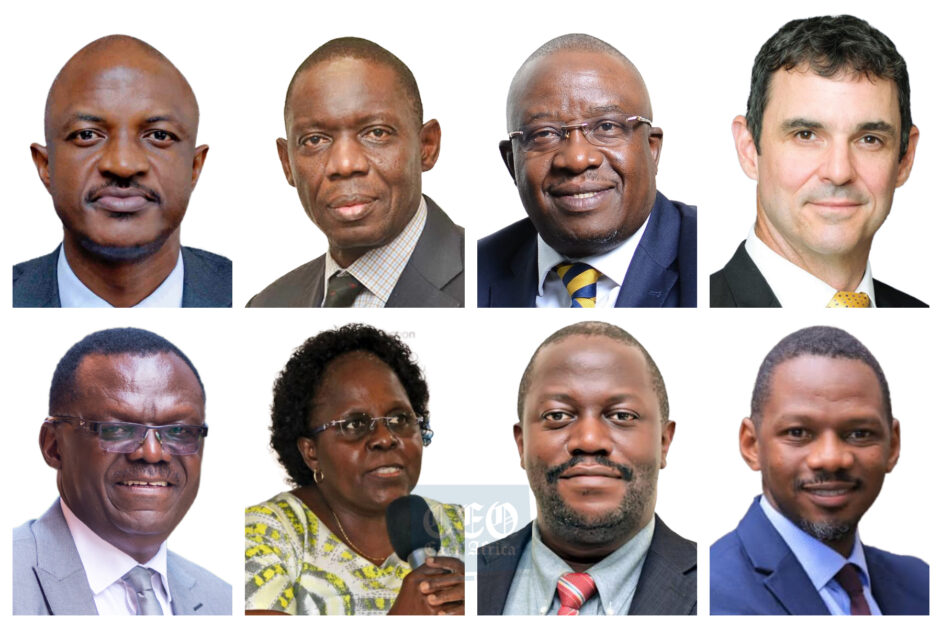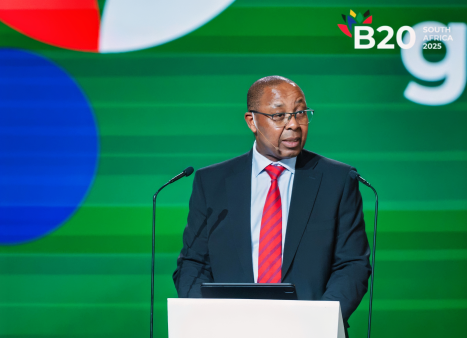Ahead of the event, David Wandera FCCA, the Absa Executive Director & Head of Financial Markets discusses the financial markets landscape in 2023 and why it is important for financial markets actors, policymakers and other stakeholders to attend and or follow the release of the #AFMIIndex2024.
From your perspective as a key financial markets actor in Uganda, how did Uganda’s financial markets perform in 2023?
The Ugandan financial markets performed well – especially when compared to global and regional financial markets. Specifically, the currency remained fairly stable – depreciating less than 2% compared to several other African currencies that depreciated more than 5%. This was despite a high global interest rate environment that typically would result in a flight to safety – which would mean more dollars leave Uganda during the calendar year. In 2023, Uganda was a net recipient of dollars – which contributed to the relative stability of the shilling.
Additionally, the recent Primary dealership system continues to thrive in aiding the growth of secondary market volumes over the past 3 years of its existence. We have seen exponential growth in volumes traded on the secondary market which is up over 300% since the inception of the primary dealer system.
The latest Absa Africa Financial Markets Index reports that the Uganda local currency government bonds were added to the FTSE Frontier Emerging Markets government bond index which gives good visibility of our local bonds in the offshore space.
Which major policy changes were made around the Ugandan financial markets in 2023 and how did these drive the performance of the sector?
The gazetting of the Appraised Book Value regulation was a big milestone. It will spur financial institutions to enter into specified financial contracts for risk and liquidity management and further increase the stability, safety and international visibility of the domestic financial markets.

Every year, Absa Group releases the Absa Africa Financial Markets Index (AFMI) – under which the strength of Uganda’s financial markets is gauged alongside several other African countries. Based on the country’s performance in the index over the last 7 years, which notable changes would you say have contributed to the growth of our financial markets?
Ever since the AFMI was initially launched in 2017, Uganda has significantly improved its position. Initially, the country ranked at no. 10 with a score of less than 50 and has now risen to the 4th position in the whole of Africa, and a number of factors have led to that improvement – a few of which I’ll highlight below:
- Uganda made changes to the Primary dealers’ system in 2020 – sparking a transformation and increasing volumes of Treasury bills/bonds traded in the market by over 300% since the reforms were introduced in 2020.
- In addition to introducing PD reforms, at the start of the index, Uganda’s longest-dated bond was 15 years and that was improved upon by introducing the 20-year bond, which included the number of choices available for investors to choose from.
- Another significant change was the amendment of the Withholding Tax regime relating to bonds. There was a reduction in tax rates for longer-dated bonds to come closer to where other East African countries are – specifically reducing withholding tax on bonds that are 10 years and above from 20% to 10%. This move has not only increased the amount of bonds being traded but also the overall interest rates for longer-dated bonds in the market as interest for these bonds has significantly increased.
On the 6th of February 2023, Absa Bank Uganda will host the Economic Outlook Forum where the 2023 Absa Africa Financial Markets Index (AFMI) will be analysed by industry players. What outcomes are you hoping to see result from the forum?
The launch of the Index to stakeholders of the Financial Markets in Uganda is supposed to increase understanding of the successes that have been achieved by Uganda within the year under review. It is also meant to support the various stakeholders towards making policy and other changes that will get Uganda to an improved position with regards to the development of the Financial Markets – and particularly in the pillars of the report that need the most amount of work i.e. the Capacity of Local Investors and; Market depth.

 Letters to My Younger Self: Winnie Nakimuli—"You Are Worthy Simply Because You Exist"
Letters to My Younger Self: Winnie Nakimuli—"You Are Worthy Simply Because You Exist"


